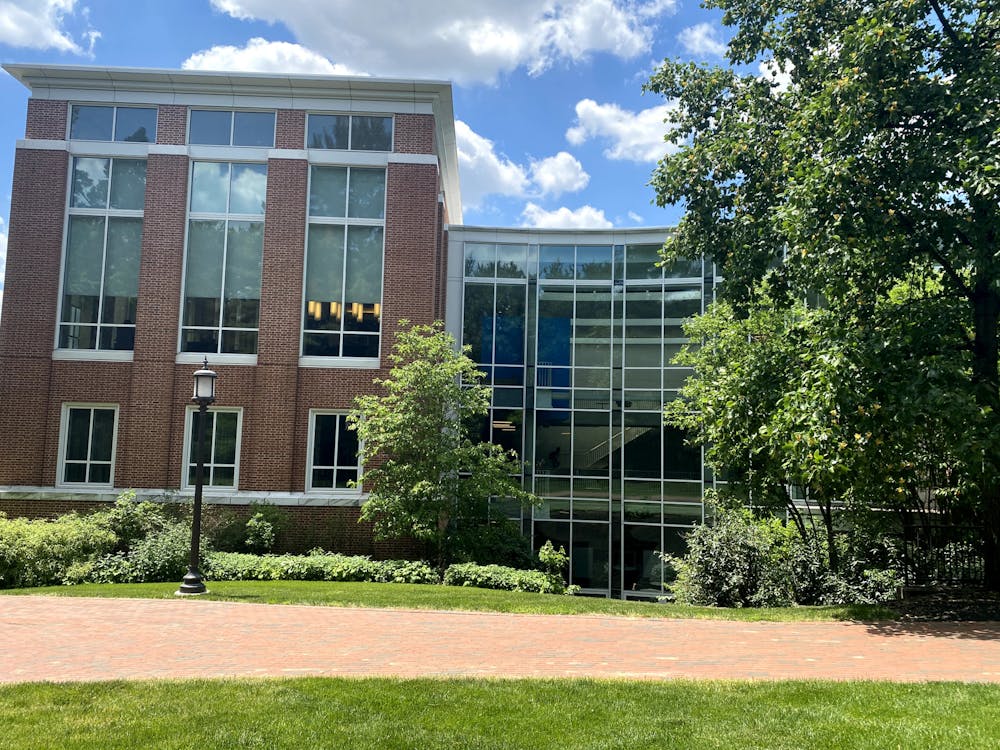The Aronson Center for International Studies hosted its third event of the semester, titled “Climate Change and Capitalism: The Cost of our Modern Lifestyle” on Oct. 25.
The event was the first panel of the semester, featuring Sarah Jordaan, a professor of energy, resources and environment at the School for Advanced International Studies and international activists Lana Weidgenant and Sophia Kianni.
Weidgenant spoke about young people’s roles in the climate movement.
“Many young people aren't the ones that made the decisions that led us to this point. The impacts of climate change will get stronger and will impact the youngest generations the most,” she said. “Younger-led nonprofit movements tend to think about climate [through] a justice approach. From an intersectionality concern, many [youth-led] organizations don’t advocate for carbon taxes because of the impacts on poorer communities.”
Kianni echoed Weidgenant’s comments. She claimed that young people collectively feel a greater sense of urgency and that the large strikes organized by youth have helped to bring significant attention to the issue of climate change.
“Young people aren't losing anything by advocating on behalf of the planet because they aren't held back by lobbying,” she said. “Young people are pushing politicians to act.”
Both activists participate in programs within the United Nations (UN). Kianni represents the U.S. as the youngest member on the inaugural UN Youth Advisory Group on Climate Change and Weidgenant serves as vice chair of Shifting to Sustainable Consumption Patterns for the UN Food Systems Summit.
Jordaan reflected on climate discussions of the past, noting that there is now less denial of climate change. She asserted that although the world has not yet made enough progress, conversations have significantly shifted thanks to young people.
Jordaan talked about how overall impacts can be reduced and discussed some policy options. She emphasized the need for policy packages to work in tandem rather than as discrete policies and discussed that these collective actions are possible.
Freshman Nicholas Meeker highlighted how the panelists’ comments around youth involvement and individual roles in fighting for climate justice resonated with him in an interview with The News-Letter.
“Coming from California, I’ve experienced numerous climate-related disasters that have affected my hometown,” he said. “Consequently, I came to value environmental resourcefulness in everyday life.”
He also learned about the importance of implementing policy packages rather than individual policies from the panelists.
“I had not considered the taxes’ potential impact on low-income families. I was lacking this nuance toward these policies prior to the talk, and I found this approach intriguing,” he said.
The panelists took questions from the audience as well. They discussed whether it was ethical to blame certain, if any, entities. Jordaan suggested that there are actors more responsible for climate change than others and that society must work to hold companies accountable.
Both Weidgenant and Kianni discussed the importance of getting involved with climate justice organizations to combat the impacts of responsible actors. Kianni in particular mentioned that individuals should be active participants in the political process, attending protests and paying attention to elections.
Weidgenant asserted that fighting for climate justice requires addressing the roots of climate change, not just the trickle-down impacts.
“If we just fix the symptom, we’ll have another climate crisis. [We need] a system that functions more justly [and with] more intersectionality,” she said. “We need to have this larger change. The end goal needs to be creating a different system that won't lead us to this.”
In an interview with The News-Letter, Emily Mehler, co-chair of the International Studies Leadership Council (ISLC) Speaker Series Committee, explained why ISLC chose to host this event.
“It was really important to pick topical issues,” she said. “Because of [the University’s] strong [science, technology, engineering and math] focus and its international studies community, the issue of climate change reaches a large audience.”
She also discussed the impact that the speakers had on her as well as the attendees.
“They gave practical changes that can be implemented into the lives of students.” she said. “Their understanding [and explanation] of equitable climate change was tremendously important for our diverse student body.”





